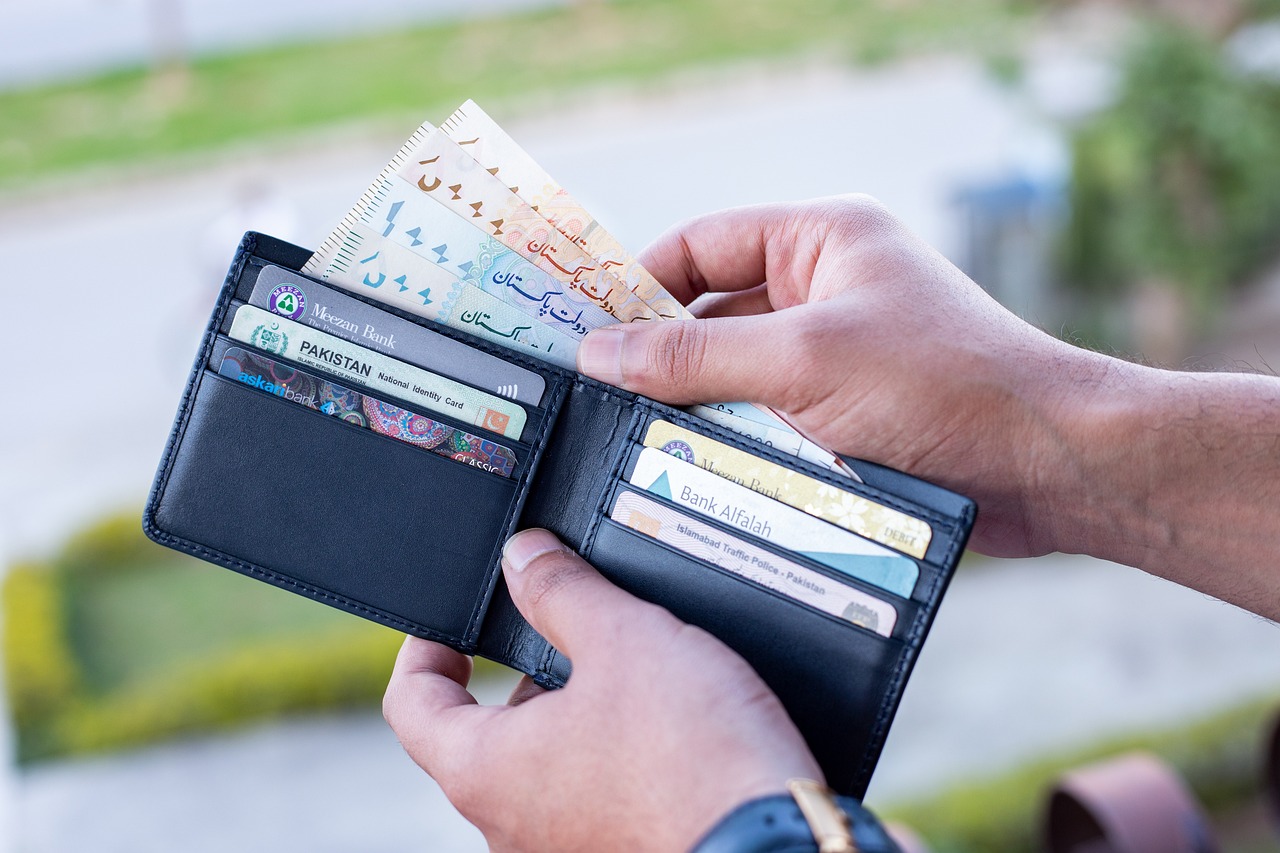Understanding the Legal Framework for Crypto Wallet Services
The rise of cryptocurrencies has ushered in a new era of digital finance, where traditional banking systems are being challenged by decentralized technologies. However, with great innovation comes great responsibility, and that's where the legal framework for crypto wallet services comes into play. As these digital wallets become increasingly popular for storing and transacting cryptocurrencies, understanding the laws and regulations that govern them is crucial for both users and providers.
Crypto wallet services operate in a complex landscape filled with various regulations designed to protect consumers and ensure the integrity of the market. These regulations not only help to mitigate risks associated with fraud and money laundering but also establish a level of trust between users and service providers. As we dive deeper into this article, we'll explore the regulatory overview, compliance requirements, and the implications of these laws for all parties involved in the crypto ecosystem.
In this ever-evolving digital currency market, staying informed about the legalities surrounding crypto wallets is not just a necessity; it's an essential part of navigating the future of finance. Whether you're a seasoned investor or a newcomer to the world of cryptocurrency, understanding the legal framework can help you make informed decisions and protect your assets.
At the heart of the legal landscape for crypto wallet services are various regulations imposed by financial authorities worldwide. These regulations aim to create a safe environment for users while ensuring that the market remains robust and transparent. For instance, in the United States, the Financial Crimes Enforcement Network (FinCEN) plays a pivotal role in regulating crypto wallets by enforcing compliance with anti-money laundering (AML) laws and requiring certain wallet providers to register as money services businesses (MSBs).
Similarly, in the European Union, the Fifth Anti-Money Laundering Directive (5AMLD) has extended AML regulations to include cryptocurrency exchanges and wallet providers. This directive mandates that these services implement stringent Know Your Customer (KYC) protocols to verify the identities of their users. Such measures are crucial in preventing illicit activities and ensuring that the crypto market operates within a legal framework that protects consumers.
Compliance is not just a buzzword; it’s a necessity for crypto wallet providers. Meeting compliance obligations is vital to maintaining operational legitimacy and protecting users. Key compliance requirements include implementing KYC and AML measures. These processes are designed to deter fraud and prevent money laundering, ensuring that the crypto ecosystem remains secure.
The KYC process is fundamental for any financial service, including crypto wallets. It involves verifying the identity of users to prevent fraud and ensure that services are not exploited for illegal activities. The significance of KYC cannot be overstated, as it serves as the first line of defense against potential threats. However, wallet providers face numerous challenges when implementing KYC protocols.
By adopting KYC measures, crypto wallet services can build trust within the ecosystem. Users feel more secure knowing that their service provider is making an effort to verify identities and prevent illicit activities. This trust is essential for the long-term success of the cryptocurrency market.
Despite its benefits, KYC implementation poses challenges. Wallet providers must balance the need for security with user privacy concerns. Additionally, the technology required to efficiently manage KYC processes can be costly and complex. As the industry evolves, finding a solution that respects privacy while ensuring compliance will be paramount.
AML regulations are another critical aspect of the legal framework for crypto wallets. These laws require providers to monitor transactions and report any suspicious activities to authorities. This proactive approach is essential for maintaining the integrity of the crypto market and protecting users from fraud.
Consumer protection laws are designed to safeguard users of crypto wallet services. These laws ensure that users have recourse in the event of disputes or fraud. For instance, if a user falls victim to a scam, they may have legal avenues to pursue compensation. Understanding these protections is vital for users navigating the crypto landscape.
With the rise of data privacy concerns, regulations such as the General Data Protection Regulation (GDPR) in Europe significantly impact how crypto wallet services manage user data. Providers must ensure that they comply with these laws, which dictate how personal information is collected, stored, and used. Failure to comply can result in hefty fines and damage to reputation.
As technology continues to evolve, so too will the regulations surrounding crypto wallets. Emerging technologies like blockchain and artificial intelligence will likely influence regulatory frameworks, leading to more sophisticated compliance measures. Additionally, as governments around the world recognize the importance of regulating cryptocurrencies, we can expect to see new legislative changes that will shape the industry.
- What is a crypto wallet? A crypto wallet is a digital tool that allows users to store, send, and receive cryptocurrencies securely.
- Why is KYC important in crypto? KYC helps prevent fraud and money laundering by verifying the identities of users, fostering trust in the crypto ecosystem.
- How does AML regulation affect crypto wallets? AML regulations require wallet providers to monitor transactions and report suspicious activities, ensuring market integrity.
- What consumer protections are available for crypto users? Consumer protection laws provide recourse for users in cases of fraud or disputes with wallet services.
- How do data privacy laws impact crypto wallets? Data privacy laws dictate how user information is managed, ensuring compliance and protecting user data.

Regulatory Overview
The world of cryptocurrency is a vibrant and ever-changing landscape, filled with opportunities and risks alike. As digital currencies gain traction, the regulatory framework surrounding crypto wallet services has become increasingly important. Governments and financial authorities across the globe are stepping in to establish rules that not only protect consumers but also ensure the integrity of the market. But what exactly does this regulatory overview entail?
At the heart of the regulation of crypto wallet services is the need for a balance between innovation and security. Financial authorities, such as the Financial Action Task Force (FATF) and various national regulatory bodies, are working to create guidelines that crypto wallet providers must adhere to. These regulations are designed to mitigate risks associated with fraud, money laundering, and other illicit activities that could undermine the trust in digital currencies.
To illustrate the regulatory landscape, let’s take a look at some key components:
| Regulatory Body | Responsibilities |
|---|---|
| Financial Action Task Force (FATF) | Sets international standards to combat money laundering and terrorist financing. |
| European Securities and Markets Authority (ESMA) | Regulates financial markets in the EU, including crypto assets. |
| U.S. Securities and Exchange Commission (SEC) | Oversees securities transactions, including those involving cryptocurrencies. |
These regulatory bodies are not just creating rules for the sake of it; they aim to establish a framework that fosters trust among users. By ensuring that wallet services comply with established regulations, consumers can feel more secure knowing that their assets are protected. Moreover, these regulations help to weed out bad actors who might exploit the system for nefarious purposes.
However, navigating this regulatory maze is not without its challenges. Different countries have varying approaches to cryptocurrency regulation, which can create confusion for wallet providers looking to operate internationally. For instance, while some nations embrace crypto with open arms, others impose strict bans or regulations that can stifle innovation. This inconsistency can lead to a fragmented market, making it difficult for users to understand the legal implications of their transactions.
In conclusion, the regulatory overview of crypto wallet services is a crucial aspect of the digital currency ecosystem. As regulations evolve, both providers and users must stay informed about their rights and responsibilities. The ultimate goal is to create a safe and transparent environment where innovation can flourish while protecting consumers from potential threats. As we move forward, it will be fascinating to see how these regulations adapt to the rapid advancements in technology and the ever-growing popularity of cryptocurrencies.

Compliance Requirements
In the rapidly evolving world of cryptocurrency, compliance requirements for crypto wallet providers are not just a regulatory checkbox; they are a vital part of ensuring the integrity and safety of the digital currency ecosystem. These requirements are primarily designed to protect consumers, prevent illicit activities, and foster trust in the burgeoning market. As a wallet provider, understanding these obligations is crucial for long-term success and sustainability.
One of the most critical compliance obligations is the implementation of Know Your Customer (KYC) protocols. KYC involves verifying the identity of customers to ensure that they are who they claim to be. This process is vital in preventing fraud and money laundering. Wallet providers need to collect specific information from users, such as government-issued identification, proof of address, and other personal details. The challenge lies not only in collecting this information but also in ensuring that it is stored securely and used responsibly.
Another essential compliance measure is adherence to Anti-Money Laundering (AML) regulations. These regulations require wallet providers to monitor transactions actively and report any suspicious activities to the relevant authorities. This means that providers must have robust systems in place to track transactions, analyze patterns, and identify any red flags that could indicate fraudulent behavior. The implementation of effective AML measures is not just about compliance; it’s about protecting users and maintaining the credibility of the entire crypto market.
To give you a better understanding of the compliance landscape, here's a brief overview of the key compliance components:
| Compliance Component | Description |
|---|---|
| KYC | Verifying user identities to prevent fraud and money laundering. |
| AML | Monitoring transactions and reporting suspicious activities to authorities. |
| Data Privacy | Ensuring user data is handled according to privacy regulations like GDPR. |
| Consumer Protection | Implementing measures to safeguard user funds and personal information. |
In addition to KYC and AML, wallet providers must also navigate the complexities of data privacy regulations. With laws like the General Data Protection Regulation (GDPR) in Europe, providers are required to manage user data responsibly and transparently. This includes obtaining user consent for data collection, allowing users to access their data, and ensuring that data is stored securely. The challenge here is balancing compliance with the need for a seamless user experience. Striking this balance is crucial, as overly stringent measures can deter potential users.
Moreover, consumer protection laws are becoming increasingly relevant in the crypto space. These laws are designed to protect users from fraud and ensure that they have recourse in the event of disputes. Wallet providers must be aware of these regulations and implement policies that align with them. This not only helps in complying with the law but also builds trust with users, who are often wary of the risks associated with digital currencies.
In summary, the compliance landscape for crypto wallet services is multifaceted and constantly evolving. Providers must stay informed about regulatory changes and adapt their practices accordingly. By prioritizing compliance, wallet providers can not only protect themselves from legal repercussions but also enhance user trust and contribute to the overall integrity of the cryptocurrency market.
- What are the main compliance requirements for crypto wallet providers? Compliance requirements include KYC, AML, data privacy regulations, and consumer protection laws.
- Why is KYC important? KYC helps prevent fraud and money laundering by verifying the identity of users.
- How do AML regulations affect wallet providers? AML regulations require providers to monitor transactions and report any suspicious activities to authorities.
- What role do data privacy regulations play? Data privacy regulations ensure that user data is handled responsibly and transparently, protecting user rights.

Know Your Customer (KYC)
In the world of cryptocurrencies, processes have become a cornerstone of compliance, particularly for crypto wallet services. But what exactly does KYC entail? At its core, KYC is all about verifying the identity of customers before they can engage in transactions. This is crucial because, without proper identification, the risk of fraud and money laundering skyrockets. Imagine walking into a bank and being able to withdraw money without showing any ID; it would be chaos! Similarly, the crypto space needs to establish a secure environment where users can feel safe and protected.
The KYC process typically involves several steps, including collecting personal information such as names, addresses, and dates of birth. Wallet providers often require users to submit identification documents, such as a passport or driver's license, to confirm their identity. This might sound tedious, but it’s a necessary measure to prevent illicit activities. Think of it as a digital bouncer checking IDs at the club entrance—only those who meet the criteria get in, ensuring a safer environment for everyone.
However, implementing KYC protocols is not without its challenges. Many wallet providers face significant hurdles, particularly regarding user privacy concerns. Users often feel uneasy about sharing sensitive information, fearing that their data might be misused or inadequately protected. Additionally, the technology required to efficiently manage KYC processes can be costly and complex. Providers must strike a delicate balance between adhering to regulatory requirements and maintaining user trust.
Despite these challenges, the benefits of KYC are substantial. By implementing thorough KYC procedures, crypto wallet services can build a stronger foundation of trust within the ecosystem. Users can feel more secure knowing that their funds are less likely to be exploited for illicit activities. Moreover, KYC compliance can enhance a wallet's reputation, attracting more users who are looking for reliable and secure services. It's a win-win situation!
As the crypto landscape continues to evolve, the role of KYC will only grow more critical. With increasing regulatory scrutiny, wallet providers must stay ahead of the curve by adopting innovative technologies that streamline KYC processes while ensuring user privacy. This could involve utilizing advanced encryption methods or even integrating biometric verification systems. The future of KYC in crypto wallets is not just about compliance; it's about fostering a safe and trustworthy environment for all users.
- What is KYC? KYC stands for Know Your Customer, a process used to verify the identity of customers to prevent fraud and money laundering.
- Why is KYC important in crypto? KYC helps ensure that crypto transactions are secure and that wallet services are not exploited for illegal activities.
- What challenges do wallet providers face with KYC? Providers often encounter user privacy concerns, high implementation costs, and the need for efficient technology solutions.
- How does KYC benefit users? KYC builds trust in the crypto ecosystem, making it safer for users to engage in transactions.

Benefits of KYC
When it comes to the world of cryptocurrencies, the term Know Your Customer (KYC) might seem like just another bureaucratic hurdle. However, its benefits extend far beyond compliance and paperwork. Implementing KYC processes in crypto wallet services serves as a crucial pillar in building a secure and trustworthy digital currency ecosystem. First and foremost, KYC helps to establish a robust framework for identity verification. By ensuring that users are who they say they are, wallet providers can significantly reduce the risk of fraud and the misuse of their platforms for illicit activities.
Imagine walking into a bank without any identification. It would be unthinkable, right? The same principle applies to crypto wallets. By requiring users to undergo KYC checks, wallet services can create a safer environment for everyone involved. This not only protects individual users but also enhances the overall reputation of the cryptocurrency industry. When consumers feel safe, they are more likely to engage with digital currencies, leading to greater adoption and market growth.
Moreover, KYC contributes to regulatory compliance. Financial authorities around the world have started to crack down on unregulated crypto activities, and wallet providers that implement KYC measures are better positioned to comply with these regulations. This proactive approach can lead to fewer legal issues and a smoother operational process. In essence, KYC acts as a protective shield, safeguarding both the wallet providers and their users from potential legal repercussions.
Another significant advantage of KYC is its role in fostering trust within the crypto community. When users know that a wallet service is taking steps to verify identities, they are more likely to feel confident in using the service. This trust is essential for the growth of the cryptocurrency market, as it encourages more people to invest and transact in digital currencies. Additionally, wallet providers that prioritize KYC can build a loyal customer base, as users appreciate transparency and accountability.
Finally, the implementation of KYC can lead to improved customer service. By having verified information on users, wallet providers can tailor their services to meet the specific needs and preferences of their clientele. This personalized approach not only enhances user experience but also helps in building long-term relationships with customers. In a world where consumers are inundated with choices, providing exceptional service can set a wallet provider apart from the competition.
In summary, while KYC may seem like a hurdle, its benefits are undeniable. From enhancing security and compliance to fostering trust and improving customer service, KYC plays a vital role in the success of crypto wallet services. As the digital currency landscape continues to evolve, embracing KYC will be crucial for providers aiming to thrive in this competitive market.
- What is KYC? KYC stands for Know Your Customer, a process used by financial institutions to verify the identity of their clients.
- Why is KYC important in crypto? KYC is important in crypto to prevent fraud, money laundering, and to ensure compliance with regulations.
- How does KYC protect users? KYC protects users by ensuring that wallet services are not exploited for illicit activities, thus fostering a safer environment.
- What are the challenges of KYC? Challenges include user privacy concerns and the need for efficient technology solutions to manage the verification process.

Challenges of KYC
Implementing Know Your Customer (KYC) processes in the crypto wallet industry is no walk in the park. While KYC is essential for preventing fraud and money laundering, it comes with a unique set of challenges that wallet providers must navigate. One of the most significant hurdles is maintaining a balance between compliance and user experience. Users often find KYC processes tedious, leading to frustration and potential abandonment of services. Imagine trying to buy your favorite gadget online, but first, you have to fill out a lengthy questionnaire, provide identification, and wait for verification. It can be a real buzzkill!
Moreover, privacy concerns are at the forefront of users' minds. Many individuals are wary of sharing personal information, especially in an environment where data breaches are too common. Wallet providers must reassure users that their data will be handled with the utmost care, adhering to stringent security measures. This is where the challenge intensifies—how do providers ensure robust security without making users feel like their privacy is at risk?
Another challenge lies in the ever-evolving nature of regulations. KYC requirements can vary significantly from one jurisdiction to another. For instance, a wallet service operating in Europe may face different KYC obligations than one in Asia or North America. This inconsistency can lead to confusion and additional operational costs for providers who must implement multiple KYC protocols to accommodate different regions. It's like trying to hit a moving target; just when you think you've got it figured out, the rules change!
Additionally, the reliance on technology to facilitate KYC processes introduces its own set of complications. While advanced technology, such as artificial intelligence and machine learning, can streamline KYC verification, it also raises questions about the reliability of these systems. What happens if the technology misidentifies a user, leading to wrongful denial of service? Providers must invest in robust systems that not only comply with regulations but also ensure accuracy and fairness in user verification.
To sum up, the challenges of KYC in the crypto wallet space are multifaceted. From user experience and privacy concerns to regulatory inconsistencies and technological reliability, wallet providers face a tough road ahead. However, overcoming these challenges is crucial for building a trustworthy and secure crypto ecosystem. As the industry continues to mature, finding innovative solutions to these KYC hurdles will be vital for fostering user confidence and ensuring compliance.
- What is KYC? KYC stands for Know Your Customer, a process used by financial institutions to verify the identity of their clients to prevent fraud and money laundering.
- Why is KYC important in crypto? KYC is crucial in the crypto space to ensure that wallet services are not exploited for illegal activities and to maintain the integrity of the financial system.
- What are the main challenges of implementing KYC? Some challenges include user experience, privacy concerns, regulatory inconsistencies, and the reliability of technology used in the verification process.
- How can wallet providers improve KYC processes? By investing in user-friendly technology, ensuring data security, and providing clear communication about how user data will be handled.

Anti-Money Laundering (AML)
Anti-Money Laundering (AML) regulations are crucial in the world of crypto wallet services, acting as a bulwark against the misuse of digital currencies for illegal activities. As cryptocurrencies gain traction, so does the potential for their exploitation in money laundering schemes. This makes it imperative for crypto wallet providers to implement robust AML protocols. The aim is simple yet profound: to ensure that transactions are transparent and traceable, thereby maintaining the integrity of the financial system.
AML regulations require crypto wallet services to monitor transactions actively and report any suspicious activity to the relevant authorities. This involves a comprehensive understanding of the transaction patterns, which can often be as intricate as a spider's web. By scrutinizing these patterns, wallet providers can identify irregularities that may indicate money laundering. The challenge lies in the balance between thorough monitoring and respecting user privacy. Striking this balance is essential not only for compliance but also for maintaining user trust.
Moreover, the implementation of AML measures often involves the use of sophisticated technologies. Many crypto wallet providers are now employing advanced analytics and machine learning algorithms to detect fraudulent activities. These tools can analyze vast amounts of data in real-time, flagging transactions that deviate from established norms. However, the reliance on technology also raises questions about the potential for false positives, which can inconvenience legitimate users.
In essence, the importance of AML in crypto wallet services cannot be overstated. It serves as a protective measure for both the providers and the users, ensuring that the crypto ecosystem remains a safe space for legitimate financial transactions. As the regulatory landscape evolves, wallet providers must stay ahead of the curve, continuously adapting their practices to comply with AML requirements. This not only helps in avoiding hefty fines but also fosters a more secure environment for all participants in the digital currency market.
- What is Anti-Money Laundering (AML)?
AML refers to the regulations and practices designed to prevent money laundering activities in financial systems, including crypto transactions. - Why is AML important for crypto wallet services?
AML helps to ensure the legitimacy of transactions, protect users from fraud, and maintain the integrity of the financial system. - How do crypto wallet providers implement AML measures?
Providers monitor transactions, analyze patterns, and report suspicious activities to authorities, often using advanced technologies for efficiency. - What challenges do wallet providers face with AML compliance?
Balancing thorough monitoring with user privacy concerns and managing the potential for false positives in transaction flagging.

Consumer Protection Laws
In the rapidly evolving world of digital currencies, have become a critical focus for both users and providers of crypto wallet services. As more individuals and businesses delve into the realm of cryptocurrencies, the need for robust legal frameworks to safeguard users from potential fraud and abuse is paramount. These laws aim to ensure that consumers are treated fairly and that their rights are protected in the event of disputes or fraudulent activities. But what do these laws actually entail, and how do they impact the average user?
At the heart of consumer protection legislation is the principle that users should have access to clear information about the services they are using. This means that crypto wallet providers are often required to disclose essential details, such as fees, terms of service, and the risks associated with digital currency transactions. By doing so, these providers not only comply with legal obligations but also foster a sense of trust and transparency within the crypto ecosystem.
One of the key aspects of consumer protection laws is the availability of recourse for users in cases of disputes. If a user finds themselves in a situation where they believe their rights have been violated, these laws typically outline the steps they can take to seek resolution. This could include filing complaints with regulatory authorities or pursuing legal action against the wallet provider. The existence of these mechanisms is crucial, as they empower consumers and provide them with a sense of security when navigating the complexities of crypto transactions.
Moreover, the landscape of consumer protection is continually evolving, especially as new technologies emerge. For instance, the rise of decentralized finance (DeFi) platforms presents unique challenges in terms of consumer rights. Unlike traditional financial institutions, many DeFi services operate without a central authority, making it more difficult for users to seek redress in the event of fraud or loss. This has led to calls for updated regulations that address the specific needs and risks associated with DeFi, ensuring that consumer protection laws keep pace with innovation.
Another significant consideration is the role of data privacy in consumer protection. As crypto wallet services often require users to submit personal information, compliance with data privacy regulations, such as the General Data Protection Regulation (GDPR), is essential. These regulations mandate that companies handle user data responsibly, ensuring that personal information is not misused or exposed to unauthorized parties. Failure to comply with these laws can result in substantial penalties, further emphasizing the importance of consumer protection in the crypto space.
To illustrate the relationship between consumer protection laws and crypto wallet services, consider the following table that outlines some key legal frameworks and their implications:
| Law/Regulation | Implication for Crypto Wallet Services |
|---|---|
| Consumer Financial Protection Act | Ensures fair treatment of consumers and mandates clear disclosures. |
| General Data Protection Regulation (GDPR) | Requires stringent data protection measures and user consent for data processing. |
| Payment Services Directive 2 (PSD2) | Encourages transparency and security in payment services, including crypto transactions. |
In conclusion, consumer protection laws are vital in establishing a secure and trustworthy environment for users of crypto wallet services. As the industry continues to grow, ongoing dialogue between regulators, providers, and consumers will be essential to ensure that these laws evolve in line with technological advancements and market dynamics. By prioritizing consumer rights, we can help foster a more stable and inclusive digital currency ecosystem.
- What are consumer protection laws in the context of crypto wallets? These laws safeguard users' rights and ensure they have access to clear information about the services they use.
- How can users seek recourse if they encounter issues with a crypto wallet provider? Users can file complaints with regulatory authorities or pursue legal action based on the protections offered by consumer protection laws.
- Why is data privacy important for crypto wallet services? Compliance with data privacy regulations helps protect users' personal information from misuse and ensures responsible data handling.

Data Privacy Regulations
In today's digital era, where data is often referred to as the new oil, play a critical role in shaping how crypto wallet services operate. With the rise of cryptocurrencies, the handling of personal and financial information has become a hotbed for regulatory scrutiny. Various laws, such as the General Data Protection Regulation (GDPR) in Europe, impose strict guidelines on how companies must collect, store, and process user data. These regulations are designed not only to protect consumers but also to enhance trust in the digital currency ecosystem.
At the heart of these regulations lies the principle of transparency. Crypto wallet providers must clearly communicate to users what data is being collected, how it will be used, and who it may be shared with. This is essential in a world where data breaches and misuse are rampant. For instance, under GDPR, users have the right to access their data, request corrections, and even demand deletion. This gives users a sense of control over their personal information, which is crucial in fostering a secure environment for crypto transactions.
Moreover, compliance with data privacy regulations requires crypto wallet services to implement robust security measures. This can include encryption, regular audits, and secure data storage solutions. However, adhering to these regulations can be a double-edged sword. While they are necessary for protecting user data, they can also pose significant challenges for wallet providers, especially smaller ones that may lack the resources to fully comply. The costs associated with ensuring compliance can be substantial, leading some providers to cut corners, which can ultimately jeopardize user security.
Another important aspect of data privacy regulations is the cross-border data transfer implications. Many crypto wallet services operate globally, which complicates compliance with various national laws. For instance, the transfer of personal data from the EU to countries without adequate data protection laws can lead to legal ramifications. To navigate this complex landscape, many providers are opting for data localization strategies, ensuring that user data is stored within jurisdictions that meet strict regulatory standards.
As the landscape of cryptocurrencies continues to evolve, so too will the regulations governing data privacy. Providers must stay ahead of these changes to avoid hefty fines and potential legal issues. Engaging in proactive measures, such as regular training for employees on data protection best practices and investing in advanced technology solutions, can help mitigate risks associated with non-compliance. In the end, embracing these regulations not only protects users but also enhances the reputation of crypto wallet services in the marketplace.
- What are the main data privacy regulations affecting crypto wallets?
The GDPR in Europe is one of the most significant regulations, but there are also other laws like the California Consumer Privacy Act (CCPA) in the United States that impact how crypto wallet services handle user data.
- How can users ensure their data is protected when using crypto wallets?
Users should choose wallet providers that are transparent about their data practices and comply with relevant regulations. Checking for security features like two-factor authentication and encryption can also enhance data protection.
- What happens if a crypto wallet service fails to comply with data privacy regulations?
Non-compliance can result in hefty fines, legal action, and damage to the company's reputation. Users may also have limited recourse if their data is mishandled.

Future Trends in Regulation
As we look ahead, the crypto landscape is poised for significant transformation, particularly in the realm of regulation. The rapid evolution of digital currencies and the increasing adoption of blockchain technology have prompted regulators worldwide to rethink their approaches. So, what can we expect in the coming years?
Firstly, the integration of artificial intelligence and machine learning into compliance processes is likely to become more prevalent. These technologies can help crypto wallet providers analyze transaction patterns, detect anomalies, and enhance their Know Your Customer (KYC) and Anti-Money Laundering (AML) measures. By leveraging AI, these companies can not only streamline their operations but also improve their ability to comply with evolving regulations.
Moreover, we may see a shift towards a more global regulatory framework. Currently, regulations vary significantly from one country to another, which can create confusion and hinder the growth of the crypto market. As international cooperation increases, we might witness the emergence of standardized regulations that can facilitate cross-border transactions and ensure a level playing field for all crypto wallet providers. This could lead to a more stable and secure environment for users, fostering greater trust in digital currencies.
Additionally, as governments continue to grapple with the implications of digital currencies, we might see new regulations focused on consumer protection. These regulations could address issues such as fraud prevention, transparent fee structures, and the safeguarding of user data. For instance, the introduction of mandatory insurance for crypto wallets could become a reality, similar to how traditional banks offer deposit insurance. This would provide users with an added layer of security, making them more likely to engage with crypto services.
Another trend to watch for is the potential for decentralized finance (DeFi) regulations. As DeFi platforms gain traction, regulators are likely to pay closer attention to how these entities operate and the risks they pose to consumers. We may see new laws tailored specifically for DeFi, focusing on transparency, accountability, and user protection. This could lead to a more robust framework that encourages innovation while also safeguarding the interests of users.
Lastly, the impact of data privacy regulations like GDPR will continue to shape the crypto wallet industry. As users become increasingly aware of their rights regarding personal data, wallet providers will need to ensure they comply with these regulations. This might involve implementing more stringent data protection measures and enhancing transparency about how user data is handled. Failure to comply could result in hefty fines and damage to a provider's reputation, making it crucial for them to stay ahead of the curve.
In conclusion, the future of regulation in the crypto wallet space is likely to be characterized by enhanced compliance measures, greater international cooperation, and a focus on consumer protection. As the industry evolves, staying informed and adaptable will be key for both providers and users alike. The interplay between innovation and regulation will ultimately determine the trajectory of the crypto market, shaping a landscape that is both secure and conducive to growth.
- What are the key regulations affecting crypto wallets? Regulations vary by country but generally include KYC and AML requirements to prevent fraud and money laundering.
- How does KYC impact users? KYC processes help ensure that wallet providers are not exploited for illegal activities, thereby enhancing overall trust in the crypto ecosystem.
- What challenges do wallet providers face with compliance? Providers often struggle with user privacy concerns and the need for efficient technology to implement KYC and AML measures effectively.
- Will regulations become more standardized globally? There is a growing trend toward international cooperation, which may lead to standardized regulations in the future.
Frequently Asked Questions
- What are crypto wallet services?
Crypto wallet services are digital tools that allow users to store, manage, and transact with cryptocurrencies. Think of them as your online bank account but for digital currencies. They can be software-based (like mobile apps) or hardware-based (physical devices).
- How are crypto wallet services regulated?
Regulation varies by country, but generally, crypto wallet services are subject to financial regulations that aim to protect consumers and ensure market integrity. This includes compliance with laws regarding anti-money laundering (AML) and know your customer (KYC) protocols.
- What is KYC and why is it important?
KYC, or Know Your Customer, is a process that requires wallet providers to verify the identity of their users. It's crucial because it helps prevent fraud and money laundering, ensuring that only legitimate users can access these services.
- What challenges do crypto wallet providers face with KYC?
Crypto wallet providers often grapple with user privacy concerns and the need for efficient technology solutions to implement KYC processes. Balancing regulatory requirements with user experience can be tricky!
- What are AML regulations?
Anti-Money Laundering (AML) regulations are laws that require crypto wallet services to monitor transactions and report any suspicious activities to authorities. This helps to combat illegal activities and maintain the integrity of the financial system.
- How do consumer protection laws apply to crypto wallets?
Consumer protection laws aim to safeguard users from fraud and ensure fair treatment. These laws provide recourse for users in case of disputes, giving them rights similar to those in traditional financial systems.
- What impact do data privacy regulations have on crypto wallets?
Data privacy regulations, like GDPR, require crypto wallet services to handle user data responsibly. Providers must ensure that user information is secure and that they comply with regulations regarding data collection and processing.
- What future trends can we expect in crypto wallet regulations?
As technology evolves, we can expect regulations to adapt as well. This may include tighter regulations on privacy, new compliance measures, and possibly more global cooperation among regulatory bodies to create a cohesive framework for crypto transactions.



















